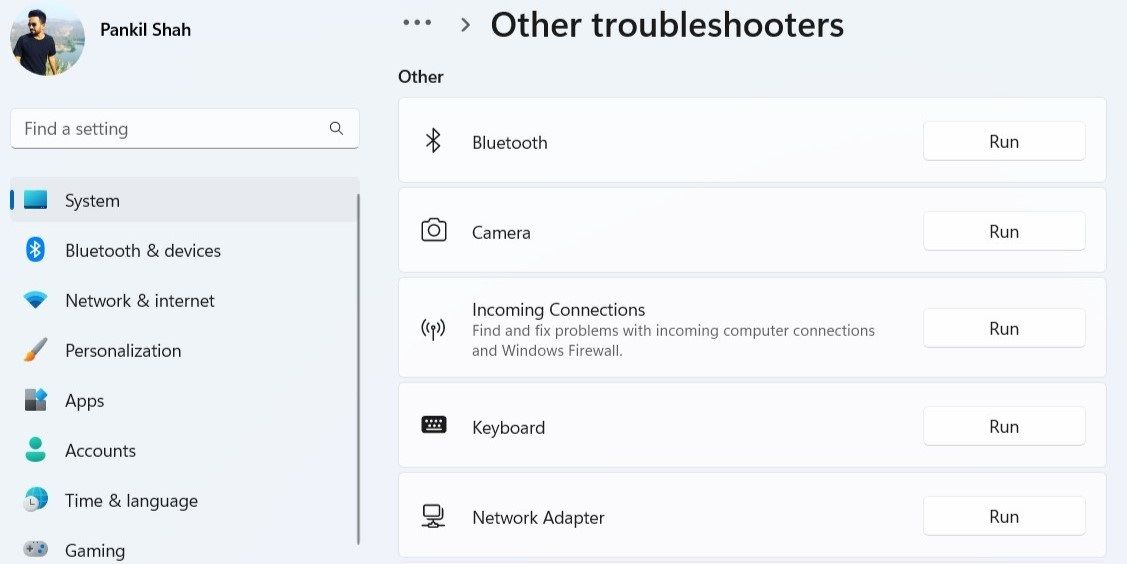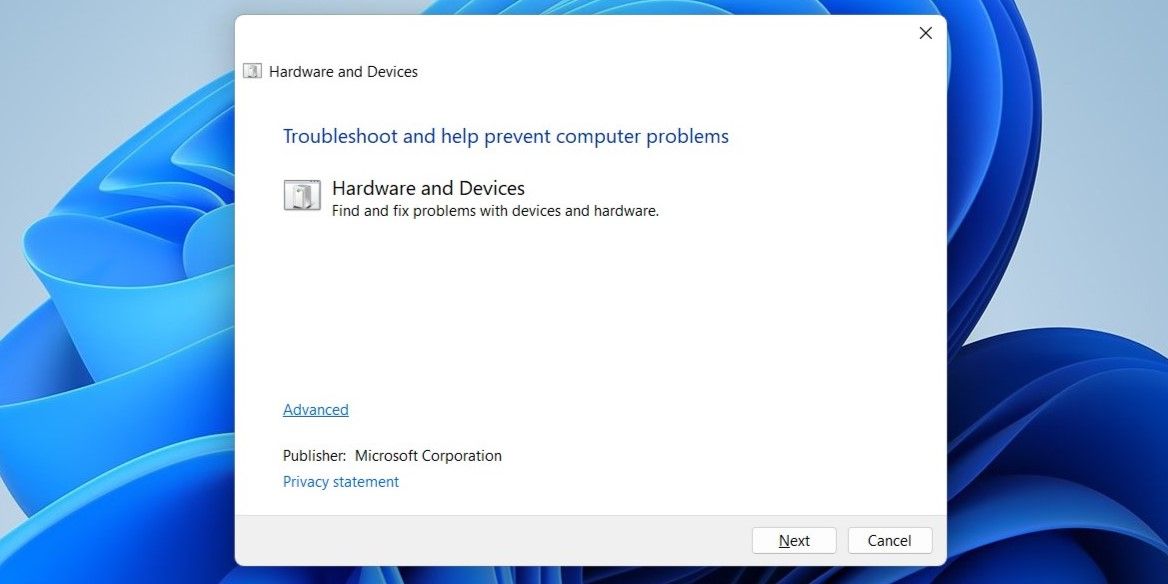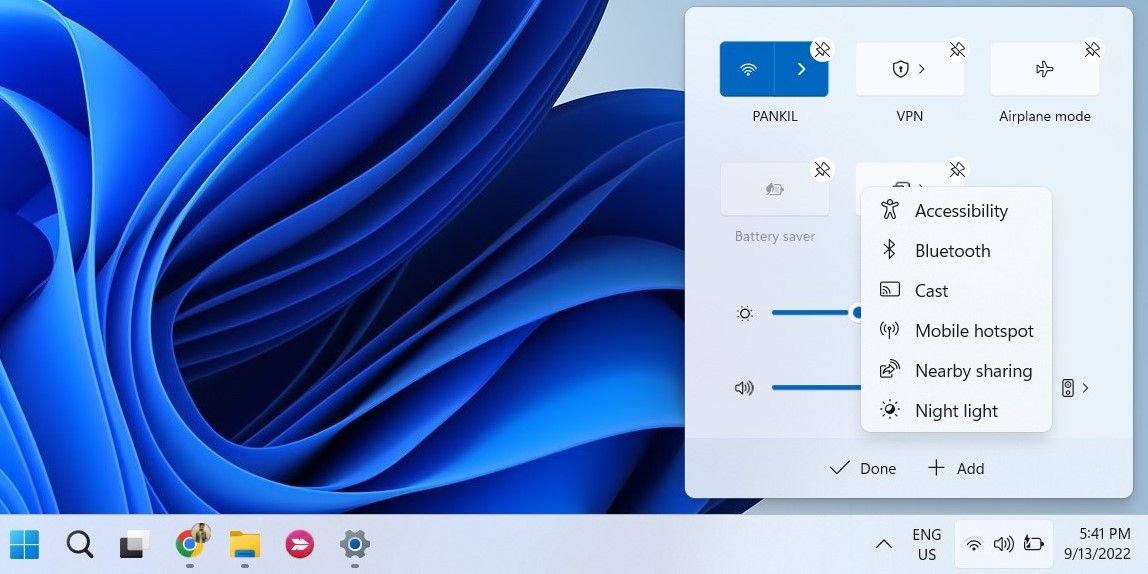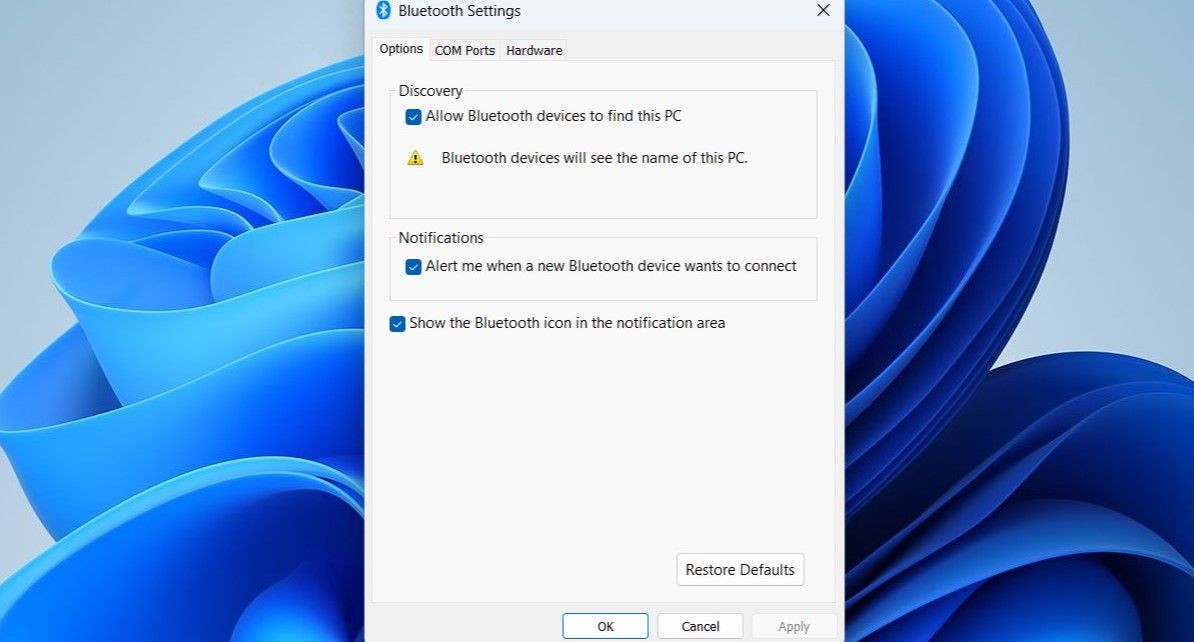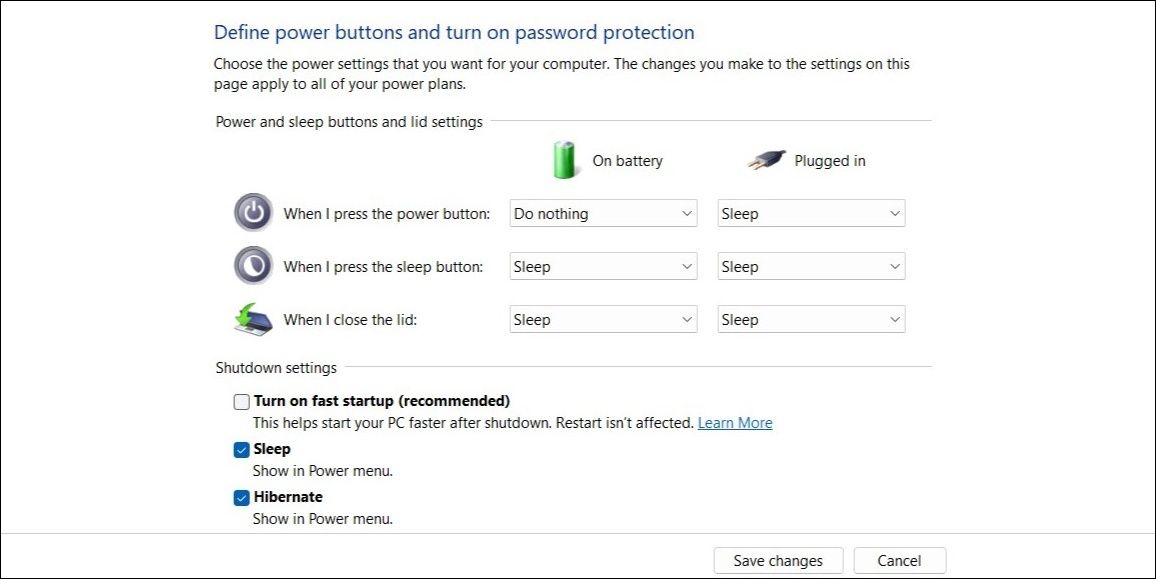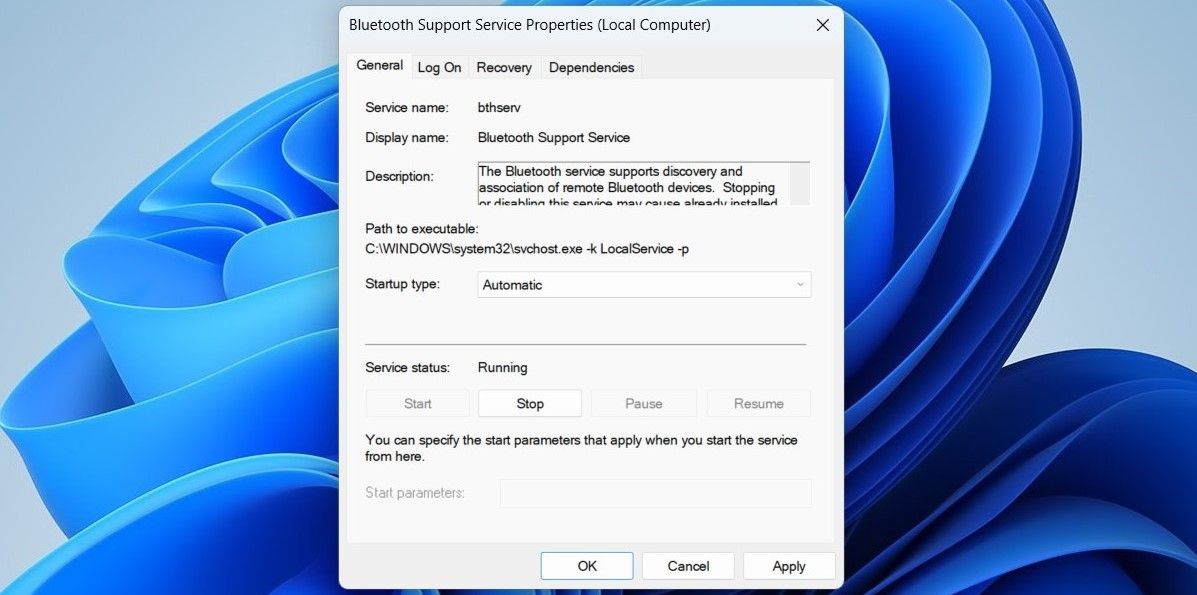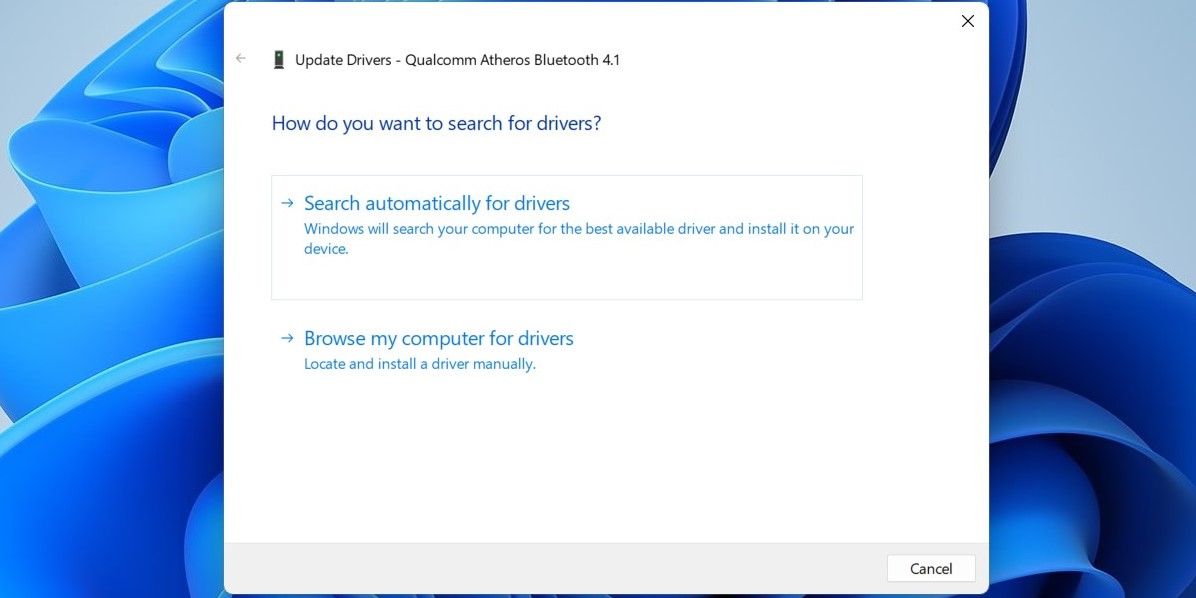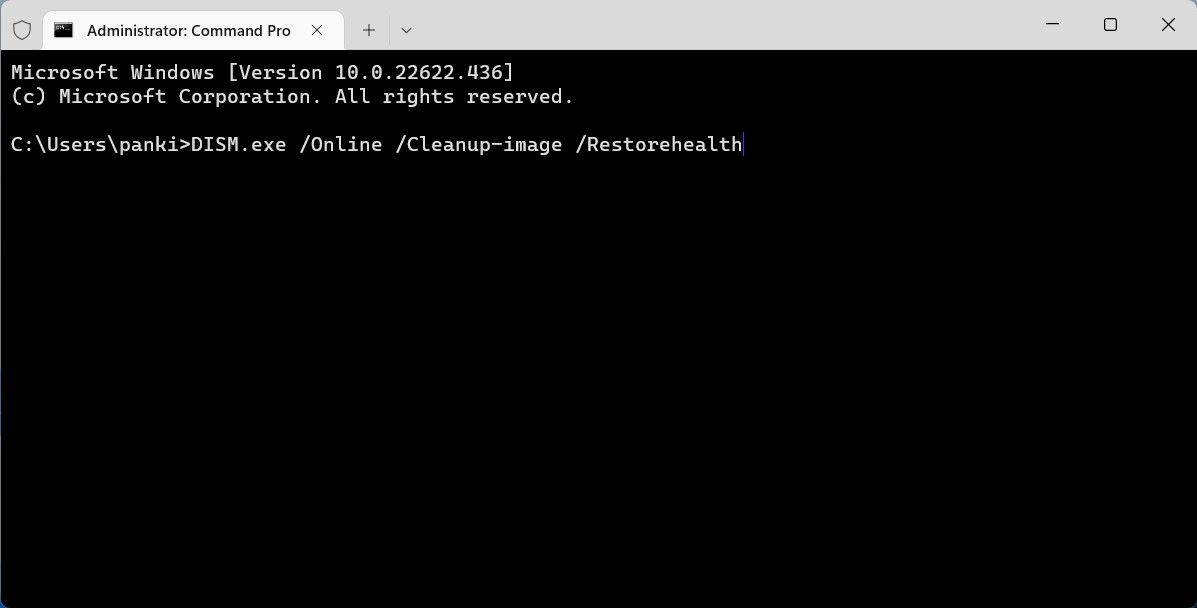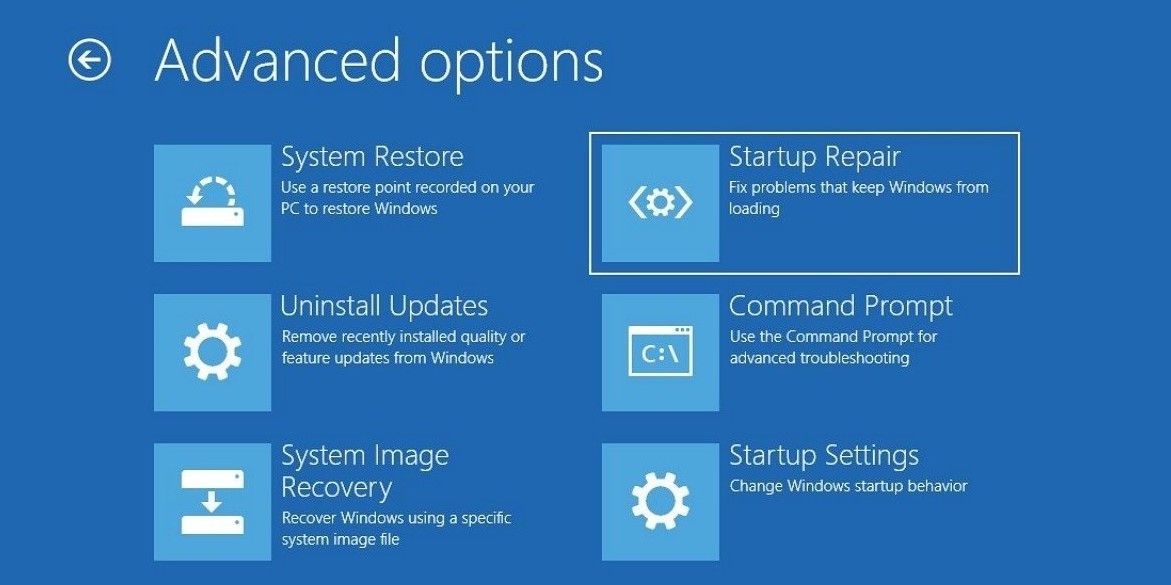
9 Ways to Fix a Missing Bluetooth Option in Windows 11
Has the Bluetooth option vanished from your Windows 11 computer? Unfortunately, the problem is much more common than you might think.
Misconfigured settings, damaged Bluetooth drivers, and even problems with the Windows OS can be the potential causes of this problem. If you don’t know what’s causing the problem, here are some troubleshooting steps you can follow to restore the missing Bluetooth option.
1. Run the Appropriate Windows Troubleshooters
Windows troubleshooters are built-in utilities that can help you diagnose and resolve various system-level issues. To start off, you can run the Bluetooth troubleshooter and allow Windows to fix any common Bluetooth-related issues. Here’s how:
- Press Win + I to launch the Settings app.
- In the System tab, click on Troubleshoot.
- Select Other troubleshooters.
- Click the Run button next to Bluetooth.
Windows will scan your computer for any issues and try to fix them. Additionally, you can run the Hardware and Devices troubleshooter to scan your computer for any hardware issues.
Here are the steps you can follow:
- Press Win + R to open the Run dialog.
- Type msdt.exe -id DeviceDiagnostic in the Open field and press Enter.
- In the Hardware and Devices window, click Next and follow the on-screen instructions to run the troubleshooter.
2. Check the Quick Settings Panel
The Quick Settings panel on Windows 11 provides access to some frequently used settings such as Bluetooth. If you can’t find the Bluetooth toggle in the Quick Settings panel, you might have removed it by mistake. Here’s how you can retrieve it.
- Press Win + A to open the Quick Settings panel.
- Click the pencil icon to edit the Quick Settings panel.
- Click on Add and select Bluetooth from the list to add it to the panel.
If you like using this panel, why not learn how to use and customize the Quick Settings panel in Windows 11?
3. Check Bluetooth Settings
The Bluetooth icon may not appear on the taskbar or system tray if you have previously removed the icon. Here’s how you can pin the Bluetooth icon to the Windows taskbar again.
- Open the Start menu and head to Settings > Bluetooth & devices.
- Go to Devices and click on More Bluetooth Settings.
- Tick the box that reads Show the Bluetooth icon in the notification area.
- Hit Apply followed by OK.
4. Turn Off Fast Startup
While enabling Fast Startup can decrease your boot times, it can occasionally prevent Windows programs and features from loading properly. Hence, it’s best to disable Fast Startup if the Bluetooth option is still missing from your computer.
To disable Fast Startup on Windows 11, use these steps:
- Press Win + S to open the search menu.
- Type control panel and press Enter.
- Go to Power Options.
- Click on Choose what the power buttons do from the left pane.
- Click the Change settings that are currently unavailable link.
- Under the Shutdown settings section, uncheck the Turn on fast startup (recommended) option to turn it off.
- Click Save changes.
Restart your PC after this and see if the Bluetooth option appears.
5. Configure the Bluetooth Support Service
Bluetooth Support Service is a small program that needs to run in the background for Bluetooth to function on Windows. If the service is not running for some reason, such issues might arise. Here’s what you can do to fix it.
- Press Win + R to open the Run dialog.
- Type services.msc in the text field and press Enter.
- Double-click on Bluetooth Support Service to open its properties.
- Use the drop-down menu next to Startup type to select Automatic.
- Hit Apply to save changes.
Restart your PC one more time and check if the Bluetooth option appears.
6. Update or Reinstall Your Bluetooth Drivers
Malfunctioning or corrupt Bluetooth drivers on your PC could also be the source of the problem. If that seems to be the case, updating the problematic driver should help more often than not.
- Right-click on the Start icon and select Device Manager from the list.
- Expand the Bluetooth section, right-click on the Bluetooth adapter, and select Update driver.
- Select Search automatically for drivers and allow Windows to install the best available drivers.
Alternatively, you can use a driver updater for Windows to ease the process.
If updating the driver does not help, you’ll have to reinstall the Bluetooth drivers. To do so, open the Device Manager again, right-click on the Bluetooth driver, and then select Uninstall device.
Once removed, restart your PC and Windows should install the missing Bluetooth driver during boot. Following this, the Bluetooth option should appear on your PC.
7. Run SFC and DISM Scans
Such issues can also arise if some critical system files are missing from your computer. Fortunately, Windows includes a few tools that can help you replace any missing or damaged system files with their cached version. Here’s how you can run them.
- Press Win + X and select Terminal (Admin) from the list.
- Select Yes when the User Account Control (UAC) prompt shows up.
- In the console, run the following command:
sfc /scannowWait for the scan to complete and then run the DISM (or Deployment Image Servicing and Management) scan.
DISM.exe /Online /Cleanup-image /RestorehealthAfter the scan is complete, restart your PC and check if the issue is still there.
8. Boot into Safe Mode
You can boot Windows in Safe Mode to run it without any non-essential drivers and programs. This can help you verify if the issue is caused by a third-party driver or program running in the background.
Windows 11 gives several options for booting into Safe Mode. You can use any of your preferred methods to enter Safe Mode and see if the Bluetooth option appears. If it does, then a third-party program or service is to blame. You’ll have to remove any recently installed apps or programs to fix the issue.
9. Troubleshoot the Issue With Startup Repair
Lastly, if nothing works, you can use the Startup Repair tool to fix any issues with Windows. Here’s how:
- Open the Start menu from the taskbar and select the power button.
- Hold down the Shift key and select the Restart option.
- Navigate to Troubleshoot > Advanced options > Startup Repair.
- Select an administrator account and enter the password, if required.
- Click Continue to run the Startup Repair tool.
Windows will scan the system for any issues and fix them. Hopefully, this will resolve the issue.
Restoring the Missing Bluetooth Option on Windows 11
You can use your PC’s Bluetooth capabilities to connect headphones, speakers, keyboards, and all kinds of other accessories. Hopefully, going through the above fixes has helped you resolve the issue for good, and you’re able to connect to Bluetooth devices as before.

